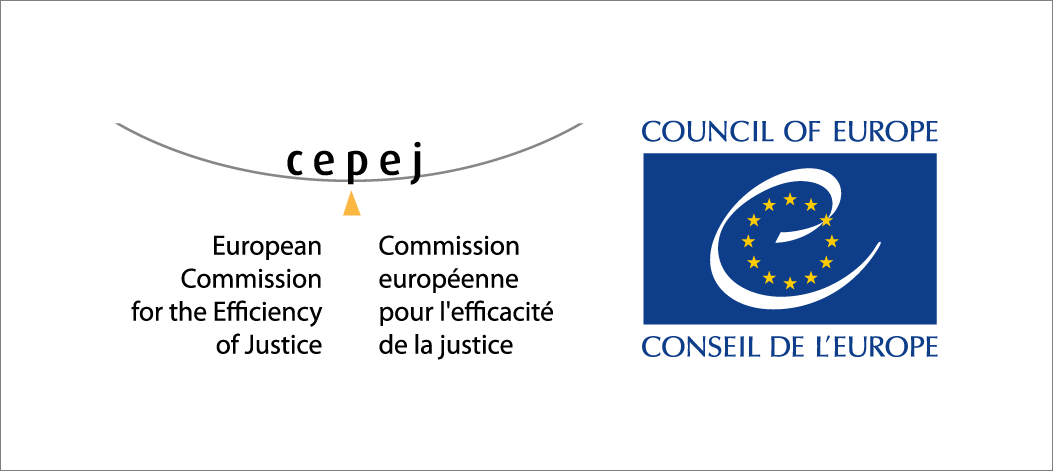Participation of the UIHJ in the ad hoc virtual plenary meeting of the CEPEJ of 10th June 2020 on the Covid-19 crisis.
Mathieu Chardon, 1st Vice-President of the UIHJ, and Patrick Gielen, Adviser to the President of the UIHJ, participated on 10th June 2020 in the extraordinary virtual meeting of the CEPEJ on the impacts and lessons of the Covid-19 crisis as regards the efficiency of the efficiency of justice and the functioning of judiciary.
This ad hoc plenary meeting of the European Commission for the Efficiency of Justice of the Council of Europe was organized in the framework of the Greek Chairmanship aimed at “Effectively responding to a sanitary crisis in full respect for human rights and the principles of democracy and the rule of law”.
Due to the Covid-19 crisis, this extraordinary meeting was held by videoconference. It was opened by Marija Pejcinovic Buric, Secretary General of the Council of Europe, and Ramin Gurbanov (Azerbaijan), President of the CEPEJ. Ms Pejcinovic Buric noted that, despite the circumstances, Council of Europe member states have made considerable efforts to resolve disputes fairly and within a reasonable time, in accordance with the Council of Europe standards and particularly Article 6 of the European Convention on Human Rights, which guarantees the right to a fair trial. However, in certain cases, she wondered whether the measures which had been taken by the authorities had fully preserved the fundamental rights of everyone – and the rule of law in general, to recall that the Council of Europe is here to help those countries stick to agreed common standards.
The meeting focused on the consequences of the Covid-19 crisis on the public service of justice and on lessons for the justice system in 2021 and beyond.
The discussions led the CEPEJ to present a draft declaration on lessons and challenges for the justice system during and after the Covid-19 pandemic. After discussions and proposals, including those of the UIHJ concerning the profession of judicial officer, the declaration was adopted as reproduced hereafter.
CEPEJ Declaration
Lessons learnt and challenges faced by the judiciary during and after the Covid-19 pandemic.
The European Commission for the Efficiency of Justice (CEPEJ) of the Council of Europe supports the Organisation’s member States in improving the efficiency and quality of their judicial systems in order to ensure that they operate in line with the standards of the Council of Europe and meet the needs of those seeking justice.
The COVID-19 pandemic is a health crisis with serious human and social consequences, it has also created challenges for courts and judicial authorities in the member States. It invites to reflect on the innovative measures that can arise within judicial systems.
Member States have made considerable efforts to adjust to new circumstances within a short time and to make the best use of existing resources to ensure the functioning of their courts.
They should maintain the momentum and draw the lessons from this experience. The crisis cannot be used to excuse deficiencies in judicial systems and even less to reduce standards or breach legal guarantees.
Such a health crisis may be repeated. The judicial systems have to be prepared, notably when it comes to effective solutions to ensure the continuity of court work and access to justice while respecting individual rights.
In this context, the CEPEJ wishes to remind the member States of the following important principles:
Principle 1 (Human Rights and Rule of Law)
The principles of Article 5 – Right to liberty and security – and Article 6 of the European Convention on Human Rights (ECHR) – Right to a fair trial – have to be protected at all times and become especially important during the crisis. The continuous functioning of the judiciary and of the services provided by justice professionals needs to be ensured based on European standards. Trust in justice must continue even at a time of crisis.
A crisis requires immediate and urgent response. However, any kind of reaction to the crisis must be strictly based on the principles of the Rule of Law and must respect and protect human rights. Emergency measures must respect the principles of legality, legal certainty and proportionality and need to be constantly re-evaluated. Judicial authorities as well as representatives of justice professionals should, where appropriate, be consulted on the emergency regulations. Any measures introduced must have a fixed end date and judicial review must be possible in due time.
Principle 2 (Access to justice)
During a pandemic, locking down courts might be necessary to protect the health and safety of justice professionals and court users. It should be done in a careful and proportionate manner as it results in an important limitation of access to justice which is a fundamental principle of the Rule of Law.
The public service of justice must be maintained as much as possible, including providing access to justice by alternative means such as online services or strengthening access to information through court websites and other means of communication (phone, email, etc.).
Greater consultation and coordination with all justice professionals (including lawyers, enforcement agents, mediators and social services) will help to ensure a good level of access to justice.
Access to justice must be ensured for all users, but at a time of health crisis, special attention must to devoted to vulnerable groups who are even more at risk of suffering from the situation. Thus, judicial systems should give priority to cases which concern these groups, such as cases of domestic violence, in particular against women and children, involving elderly people or persons with disabilities, or concerning serious economic situations. Vulnerabilities arising from the crisis should also be taken into account.
Principle 3 (Safety of persons)
Ensuring the health and safety of all the justice professionals, as well as of the users in courts must be a priority during and after the health crisis. Safety measures need to be put in place to respect the necessary physical distancing within court premises. All measures need to be prepared in consultation and explained clearly to all concerned, regularly evaluated and adapted to the new circumstances. They may require additional investments in the court infrastructure.
Teleworking should be open to justice professionals. They should be provided with the necessary secure IT equipment. Particular attention needs to be paid to their well-being during teleworking and, in particular, to the fact that these are exceptional working conditions which may require appropriate support.
Principle 4 (Monitoring case flow, quality and performance)
The well-functioning case management systems and mechanisms of statistical data collection concerning the functioning of the courts is especially relevant during a health crisis.
Court presidents, judges and authorities responsible for court management should continue to monitor and manage cases according to their responsibilities, even remotely. This includes triage of cases and possible prioritisation and redistribution of cases based on objective and fair criteria and ensuring quality justice.
Given the number of cases that could not be processed and adjournments of hearings, human resources and budgetary support should help courts to put in place a plan to absorb delays.
Allowing for a better and flexible allocation of resources as close to local reality as possible during and after the crisis is instrumental in ensuring the emergency functioning of the courts and preventing any aggravation of existing difficulties within judicial systems.
Principle 5 (Cyberjustice)
The recourse to information technologies offers the opportunity for the public service of justice to continue functioning during the health crisis. However, its rapid emergence and excessive use may equally bring negative consequences.
IT-solutions, such as online services, remote hearings and videoconferences, as well as future development of digital justice must always respect fundamental rights and principles of a fair trial.
To reduce risks inherent in the deployment of IT, their use and accessibility for all the users should have a clear legal basis. Special attention should be paid to the most vulnerable groups in this respect. The impact of the use of these technologies on justice delivery should therefore be evaluated regularly and remedial measures taken when necessary. Ensuring cyber-security and the protection of personal data must be a priority.
Principle 6 (Training)
Training is fundamental for the effective management of a health crisis in the future. Judicial training should adapt to the emerging needs, including the use of IT. New curricula should be developed to support justice professionals during and after a health crisis.
The closure of courts and the lockdown measures put in place can allow justice professionals to devote more time to training from home in a safe and secure environment. Training institutions should develop the use of e-learning platforms.
Specific training on teleworking should be provided for justice professionals.
Specific training on the new types of cases arising from the COVID-19 pandemic should also be provided for justice professionals.
Justice professionals should be consulted by competent institutions, including via online surveys, on such specific training needs.
Principle 7 (Forward looking justice)
The COVID-19 pandemic has also been an occasion to introduce emergency innovative practices. A transformation-strategy for judiciaries should be developed to capitalise on the benefits of newly implemented solutions. Some aspects of traditional court functioning should be reconsidered (relations with media, level of use of new technologies, increased recourse to alternative dispute resolution, in particular to mediation).
Transforming the judiciary for the future should be approached in a positive manner and always with respect for fundamental rights guaranteed in the ECHR. It would also be appropriate to maintain the necessary dialogue between all actors in the justice system and to take advantage of the new relations created between judges, prosecutors, court staff, lawyers, enforcement agents, notaries, mediators and experts at the time of the health crisis.
Conclusion
Over the past 15 years, the CEPEJ has developed its methodologies, tools and best practices for analysing and supporting the efficiency and the quality of judicial systems. These tools can be useful in particular in the period of a crisis and during its aftermath, to draw lessons – positive and negative – as part of its evaluation process for the improvement of the functioning of justice.
The Declaration of principles provides the basis for a possible new roadmap (“feuille de route”) of the CEPEJ to provide member States with guidance in a period of crisis that impacts the public service of justice.





